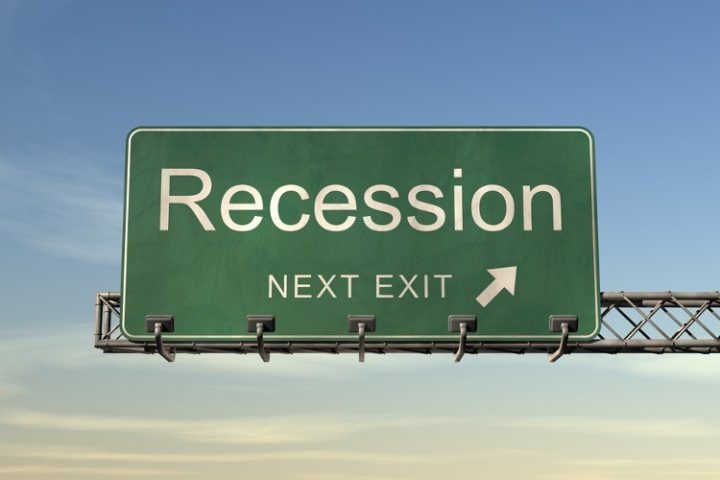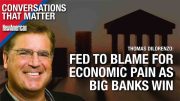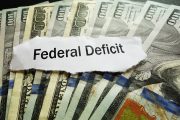
The Commerce Department on Thursday morning reported that on an annualized basis the U.S. economy slowed to just a two-percent growth rate. Economists were hugely disappointed, as the majority of them initially expected the surge in the economy in the first two quarters to continue into the third.
The U.S. economy grew, on an annualized basis, in the first quarter at 6.3 percent, and 6.7 percent in the second quarter. Many expected the third quarter to show similar, if not even better, results, reaching perhaps a nine-percent annualized growth rate.
Those experts cut their ratings as the economy visibly slowed thanks to supply-line disruptions, inflation roaring back to life, consumers hunkering down, and vaccine mandates pushing people onto unemployment lines. A week ago, they forecast that the economy grew at an annualized rate of 2.9 percent.
Consumers are indeed hunkering down. Their spending rose at an annual rate of 12 percent in the second quarter. In the third quarter, it slowed almost to a dead stop, at just 1.6 percent. In February, thanks to government stimulus checks and little chance to spend them, consumers piled into savings at an annual rate of $1.4 trillion. But, instead of spending as the economy loosened somewhat, in August their savings rate increased to annualized $1.7 trillion.
Consumer confidence in the future of the economy is dismal. According to Gallup, two thirds of them said the economy is getting worse, not better. The Economic Confidence Index fell to a negative 25 in October, the lowest reading since April 2020 when it hit a negative 33.
Since then it has slowly recovered slightly, hitting a high of plus two in April. But then the economy headed south. The October decline is its fourth consecutive retreat.
This confirms what The New American reported on October 23. Two Dartmouth College professors noted that declines in consumer confidence in both the Conference Board’s index and that of the University of Michigan portend a coming recession. They were quite specific: The U.S. economy entered recession in August.
This was confirmed at the time by GDPNow — a “nowcast” of the U.S. economy on a real-time basis from the Federal Reserve Bank of Atlanta — which showed growth plummeting from 6.1 percent in August to 3.7 percent in September. Last week, the Atlanta Fed reported the GDPNow at 0.5 percent.
Thursday morning, that “nowcast” dropped further, to 0.2 percent, approaching stall speed for the U.S. economy.
All of this portends ill for the Democrats and President Biden, whose policies have made a bad situation under COVID vastly worse. The midterm elections are just a year away, and if the professors and the Atlanta Fed are correct, the U.S. economy could then be in the throes of a massive recession.
Since most elections are “pocketbook” elections, the Democrats will likely suffer what some are predicting to be an historic defeat in November 2022.
As the old Latin proverb states, “It’s an ill wind that blows no one any good.” It’s likely to get very windy for the Democrats a year from now.



